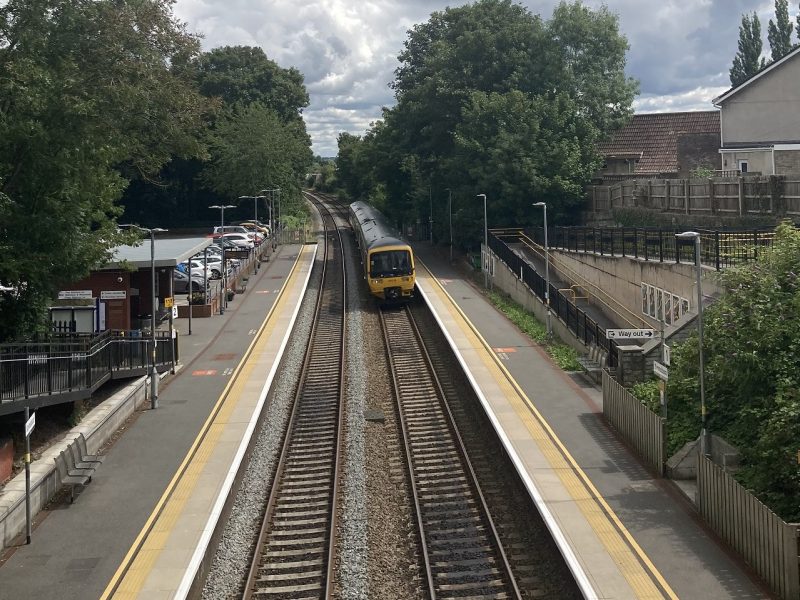EVERY railway ticket office in the Bristol region will shut under controversial plans that have sparked outrage from political leaders and disability campaigners.
The affected stations include Keynsham, Bristol Temple Meads, Bristol Parkway, Filton Abbey Wood, Bath Spa, Yate and Oldfield Park, which sold a combined 600,000 paper tickets last year.
Great Western Railway (GWR) says staff would move onto platforms and concourses where they would be better placed to help customers and provide travel advice, as well as continuing to sell tickets.
A public consultation into the proposed closures was due to end on July 26 but it has now been extended to Friday September 1. To have your say, visit https://www.gwr.com/haveyoursay
Labour metro mayor Dan Norris, the elected head of the West of England Combined Authority (Weca), which is responsible for strategic transport, met Rail Minister Huw Merriman to raise his opposition to the plans.
He told the Conservative MP that residents were “up in arms” and urged him to be “flexible and pragmatic”.
Keynsham’s ticket booth is currently open 6.45am to 9.30am, Monday to Friday.
Mr Norris said: “I told the minister just how concerned I am at the apparent railroading through of these proposals.
“The plan in Keynsham seems particularly pointless. There will still be a railway worker on duty for exactly the same hours, but they won’t be allowed to sell tickets? How does that save money? Or improve passenger experience?
“I told the minister it makes much more sense for the railway worker to use their discretion and sell tickets to passengers who would find that helpful, maybe because they find it challenging to buy a ticket from a machine, or if there are issues with the ticket machines, or simply because there is a queue.
“Because if you’re running for the train or it’s pouring with rain, passengers to Bristol are not going to be happy having to cross the bridge twice.
“We need to do everything we can to encourage people onto our railways, not put up barriers. That’s vital if we are going to try to meet our ambitious net-zero targets.”
GWR reports that the Keynsham booth sold 5,587 tickets in the financial year 2022-2023, while 22,050 tickets were sold by vending machine.
GWR did not say how many journeys from the station were booked online.
Cash payments accounted for 9.6% of transactions. Vending machine payments at Keynsham are by card only.
Mr Norris said the office closures would make life hard for everyone, especially disabled people and those who struggle to use the internet and book tickets online.
He said: “Many people in the West of England value the advice provided by staff in ticket offices.
“It’s not always simple knowing what’s best value, or the difference between peak and off-peak times, or why an advance single or a super-off-peak may be the way to go for a particular journey – tickets are tricky.”
Public transport and disabilities campaigner David Redgewell told South Gloucestershire Council cabinet: “We don’t think this is in the interests of passengers, especially passengers with reduced mobility and in need of assistance.
“This is causing great concern to disabled groups and we ask the council to formally raise objections.”
Mr Redgewell said tickets such as half-price fares for wheelchair users were not available at ticket machines, which sold only a limited range.
Cabinet member for planning, regeneration and infrastructure, Cllr Chris Willmore (Lib Dem, Yate North) told the meeting: “That’s a complete failure to understand small stations or the needs of elderly and vulnerable passengers.”
He added: “What they’re planning to do is pay people the same number of hours to be at the station but not allow them to sell tickets.
“That’s bonkers in anybody’s language and we will be campaigning strongly to stop this.”
Research by the Royal National Institute of Blind People found that only three per cent of people with sight loss said they could use a ticket vending machine without problems and 58 per cent said it was impossible.
A GWR spokesperson said transactions at its ticket offices had fallen below 15 per cent.
They said the plans would see ticket office staff working on platforms and concourses where they could be closer to customers and help them with a wider range of issues, while the kiosks could be phased out over a number of years.
The spokesperson said: “Digital tickets have made it easier and faster for customers to buy and manage tickets online, which means fewer people than ever are using ticket offices.
“With 85 per cent of ticket sales taking place outside a ticket office on the GWR network, we think it makes sense to put our people where they can be most help to customers.
GWR’s passenger assist programme, which helps disabled and mobility-impaired customers navigate stations and board trains, will not be affected.
Adam Postans, Local Democracy Reporting Service


